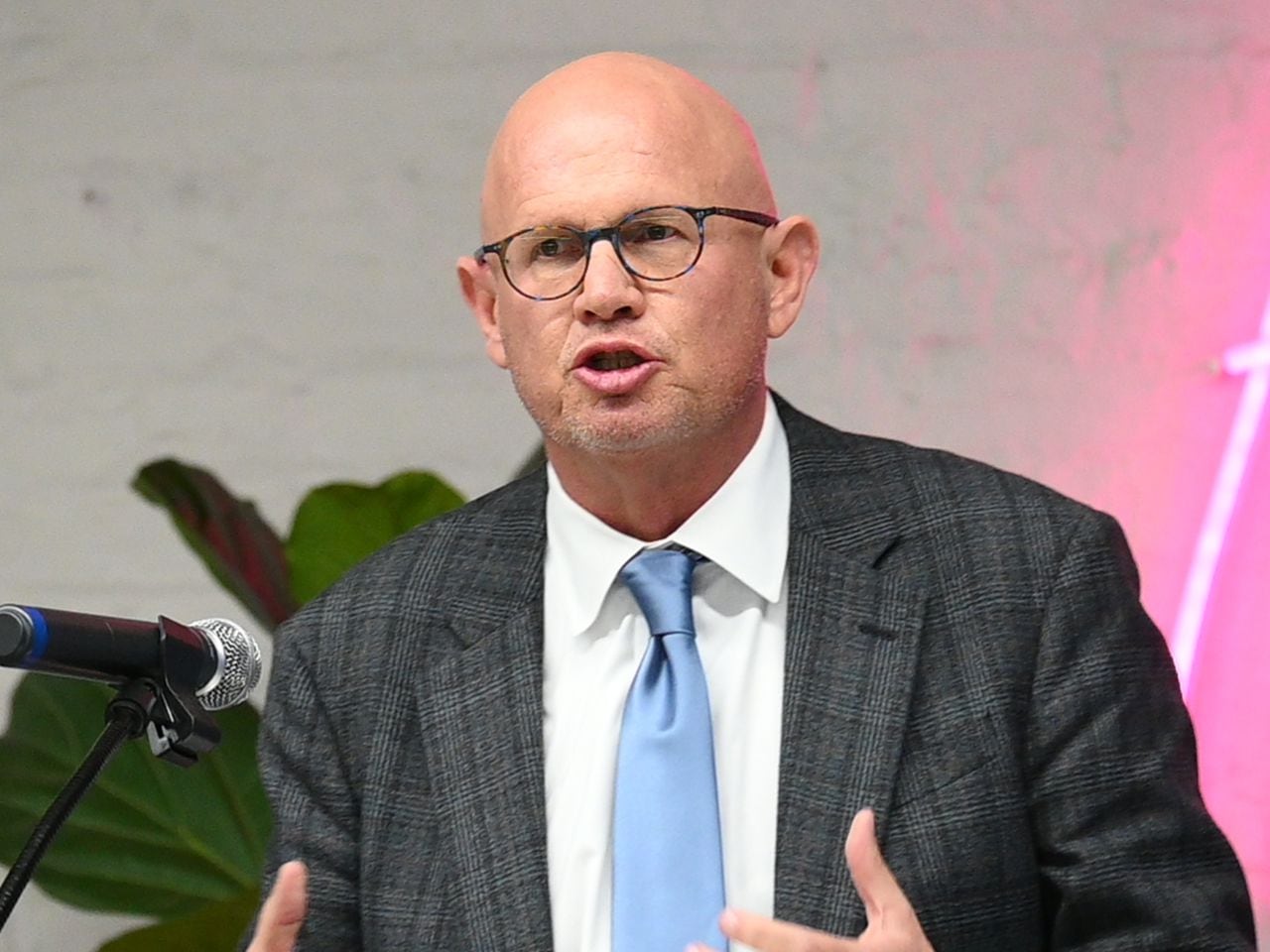Alabama-based tribe provides $500,000 to support program to combat opioid addiction
Robert McGhee said that once the Atmore-based Poarch Band of Creek Indians received its first settlement payment from litigation over the opioid epidemic, the Tribal Council wasn’t sure how best to use the funds.
But the vice-chairman of the Tribal Council said Wednesday that following conversations with Dr. Steve Lloyd, the Tennessee-based addiction health specialist whose story served as inspiration for the Hulu series, “Dope Sick,” he became convinced the best use could be supporting a Mobile-based initiative.
“It was something we wanted to make sure that we were putting the money toward a model and a system of care that will work,” said McGhee, after announcing a $500,000 donation to the Helios Alliance, a group of organizations aimed at using technologies like artificial intelligence and methodologies to develop a model aimed at combatting the opioid epidemic.
“Opioids are not only impacting our tribes, it is impacting everyone,” McGhee said. “If we can be part of something that creates this model that not only provides a system of care to Alabama, but tribal nations across the United States, then we hope to do that.”
The partnership comes at a time when the state, cities and counties are exploring how to spend their portions of a massive settlement announced last year with drug manufacturers and pharmacies as part of a federal case. Alabama received $249 million from the multi-state case that led to a settlement with CVS, Walgreens, Teva Pharmaceuticals and Allergan.
More money is to come. States and local governments will get more than $50 billion over 18 years from settlements with companies that made, sold or distributed opioid painkillers. In Alabama, there were over 1,400 drug overdose deaths, a 30% increase from 2019.
Rayford Etherton, founder of the Mobile-based Helios Alliance, said he’s hopeful that public bodies will also invest in their evolving model that is focused on developing an appropriate and comprehensive response for how Alabama will tackle the epidemic moving forward.
He said the goal is to create a model that “reduces the guesswork” in how the public bodies can best use the settlement money “with the best outcomes.”
The model focused on solutions for Alabama is expected to cost $1.5 million. The Alliance is asking mayors of the 10 largest cities in Alabama to contribute 5-8% of their opioid settlement funds to support the model’s development and administration. McGhee said he was unsure what percentage of the Tribe’s settlement money is being invested into the Alliance’s work.
“It’s a causation model that explains how and why the opioid epidemic unfolded over a period of time, the impacts of what would have happened (had different outcomes had occurred), and the real impact they have had,” Etherton said. “It’s a what-if scenario of steroids.”
Etherton said he is hopeful the model will get support from state and local governments.
Stephen McNair, director of external affairs with the City of Mobile, said the Helios Alliance’s work “seems to provide an option for how the city and county can allocate their opioid addiction funds.” He said the city will “be evaluating” the work by Helios.
Dr. Steve Lloyd, who works full-time on addiction recovery in Tennessee, speaks during a news conference on Wednesday, Jan. 24, 2024, at the Innovation Portal in downtown Mobile, Ala. Lloyd, who has participated in opioid symposiums in Mobile before, served as the inspiration behind the character Dr. Samuel Finnix — portrayed by actor Michael Keaton — on the eight-part Hulu series, “Dopsick.”John Sharp/[email protected]
The model has a big supporter in Dr. Steve Lloyd, an addiction health specialist based in Tennessee whose story served as inspiration behind the character Dr. Samuel Finnix – portrayed by actor Michael Keaton on the eight-part Hulu series, ‘Dopesick.”
“This is a game-changer,” Lloyd said.
He said the model can be used as a framework for local governments and prevent similar situations that he said he witnessed occurring in Tennessee when a county commission spent over $300,000 to support drug abuse organizations, but without any measurable system to decide if the investments were wisely allocated.
“Our goal in Alabama is to shrink the number of people who use drugs,” Lloyd said.
Related content: Tennessee doctor who inspired Michael Keaton’s ‘Dopesick’ character to lead Mobile panel talk on opioids
